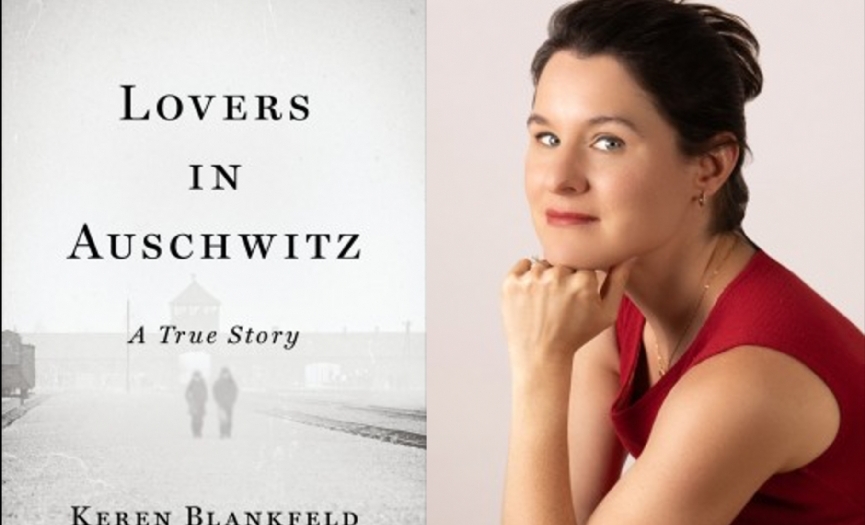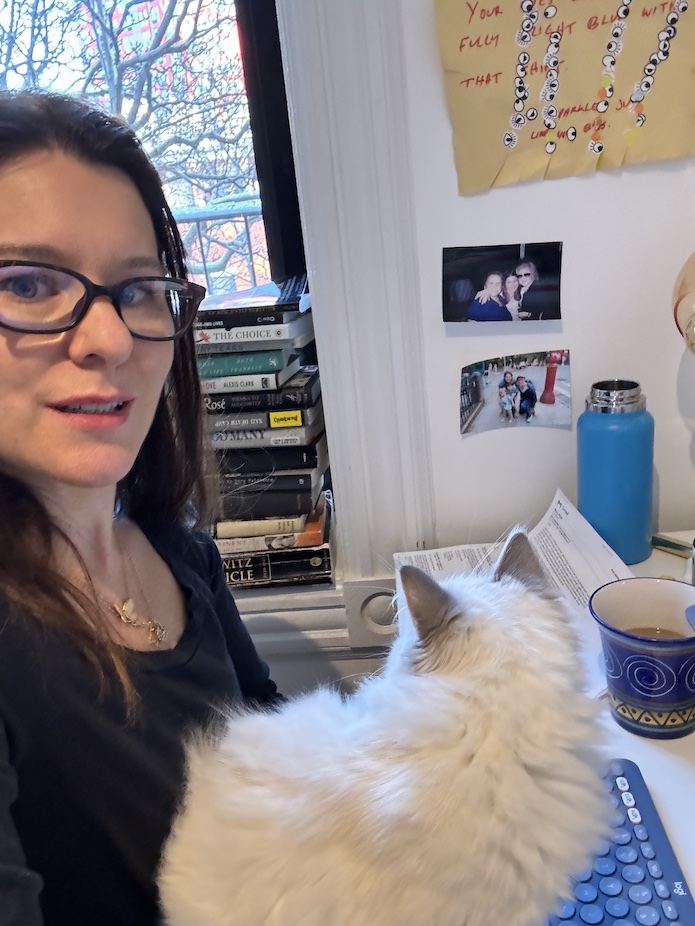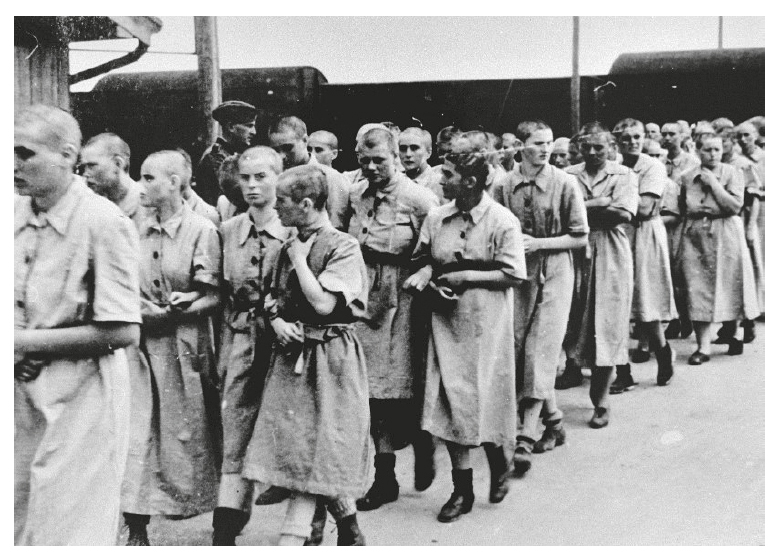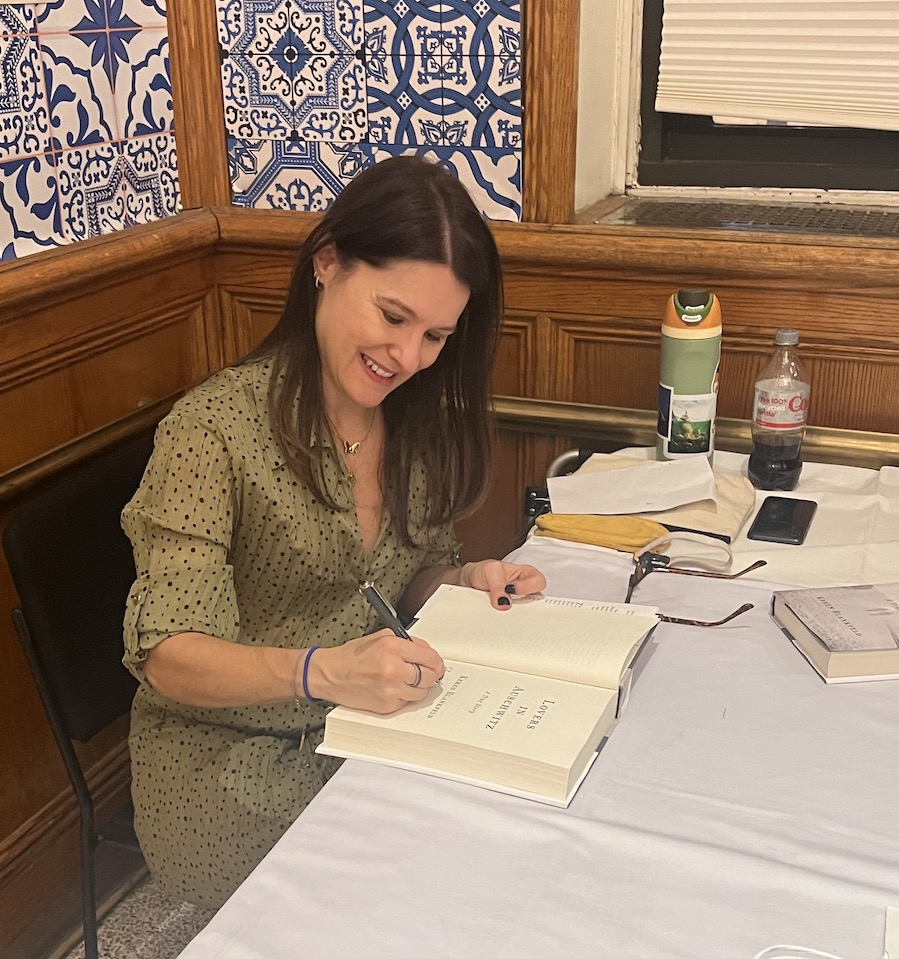
“Normal” Lives That Suddenly Explode
“One grandmother was hidden in the cellar of two Catholic women in Belarus for 630 days and nights. When she was liberated she had to relearn to walk, and to speak out loud. My other grandmother boarded a ship full of Polish orphans during the beginning of the war and went to Palestine, where she had to start her life over without her family, at age 9”
I read Journalist Keren Blankfeld's book Lovers in Auschwitz with interest and curiosity. In this book, where I confronted the harsh and painful reality of the Holocaust, I witnessed the dark picture of the period written by Keren Blankfeld, the suffering, and the integrative power of love in the human soul, as if I were watching a movie. I directed my questions about this book, which I will keep as a valuable part of my Holocaust Library, to the author of the book, Journalist Keren Blankfeld. She was kind enough to answer my questions during her busy work schedule. I am very happy to introduce the reality of "Keren Blankfeld" to my readers in the light of the answers to these questions asked by a "journalist" to another "journalist". Here are the questions that came to Bibliobibuli's mind and the answers she received, I leave you with my interview with Keren Blankfeld about her book Lovers in Auschwitz. With friendship from Bibliobibuli.
As a journalist, when did you first begin to see the Holocaust in depth?
My four grandparents are Holocaust survivors, and I knew bits and pieces of their stories ever since I can remember. As an adult, I wanted to know more about their past, and knew that it was important to preserve their stories, so I decided to interview three of my grandparents who were alive. One grandmother was hidden in the cellar of two Catholic women in Belarus for 630 days and nights. When she was liberated she had to relearn to walk, and to speak out loud. My other grandmother boarded a ship full of Polish orphans during the beginning of the war and went to Palestine, where she had to start her life over without her family, at age 9. My grandfather saw his sister and mother murdered by Nazis at their home in Ukraine, he later escaped a ghetto, became a partisan, and joined the Soviet Army. My other grandfather also served in the Soviet Army. When he returned to his home in Latvia after the war, he found that his entire family had been murdered. As I learned my grandparents' stories I was inspired by their strength and their ability to begin new lives after having lost family, friends, and pretty much everything. They didn't just start new lives, they somehow preserved their optimism and still found joy in the simplest pleasures. This is part of what drew me to read more about Holocaust and trauma survivors.

Keren Blankfeld at her desk
I tried to include as many details as I could, in order to place my readers at the scene
David Wisnia and Helen Zipora Spitzer “Zippi”; When and how did these people settle in your mind? How did your research process develop with your journalistic pen? What conclusion did this journey lead you to?
I first met David at his home in Pennsylvania in 2018. I was fortunate to meet him again a few times before he passed away in 2021. David had a great sense of humor, and was so very proud of the family and life he created in the United States. In addition to my interviews, I had access to hours of his testimony and his memoir, “One Voice, Two Lives”. I spoke with his family, and reached out to others who'd known him in Auschwitz, and anyone who knew about his time with the US Army. Zippi passed away before I got to know her story, but fortunately she left hours and hours of taped testimonies in the archives of the US Holocaust Museum in Washington, DC. I interviewed her friends and family and discovered an unpublished manuscript that she'd left behind. I listened to both David and Zippi's voices nearly every day for four years, and tried to capture them as three-dimensional human beings in the book. David and Zippi had amazing talent and personalities, but I also felt it was important to show that they were ordinary people — they could have been any of us. I read memoirs and testimonies of others who'd been with David and Zippi to cross-reference stories, and to add context and depth to their setting. When it came time to write, I tried to include as many details as I could, in order to place my readers at the scene. I love research and find that the more information I have, the easier it is to write.
Keren Blankfeld signing her book
They never gave up
What did you think and feel while tracing the pieces of bread that made you research and write the story of David and Zippi? Were you able to write "everything" in your book?
It was jarring to feel how quickly a "normal" life can implode. I was heartbroken for the losses and grief that David and Zippi experienced, again and again. And I was struck by their vitality and strength of character. They never gave up.
I was also captivated by the amazing people that they met and befriended throughout their lives. I included some of their stories, but yes, there is so much more to tell! I'd never known about the women's resistance within Auschwitz-Birkenau. Zippi participated and intersected with so many other remarkable women. I was also fascinated by stories of partisans from all over the world who united to fight the Nazis – including Zippi's brother, Sam. I found so many incredible stories as I read through testimonies. Zippi's husband was also an enigma. I could've gone down a rabbit hole following to learn about his role as a potential spy in Auschwitz, and then with the American army after the war. But I had to reign myself in and stay focused, otherwise the book wouldn't end.

A documentary photo from the Auschwitz-Birkenau Camp: “The Jews had nothing left but hunger and thirst.”
I was very impressed while reading your book. Based on documents, information and interviews, you have created intense and impressive content that could be a historical, documentary or even a horror thriller movie scenario. You have very harsh, bitter, clear expressions that describe the situation with reality. Is this clarity due to your journalistic pen?
Thank you – I really appreciate that. I did not censor myself. I felt it was important to capture the full reality of the Holocaust and to cite my sources, especially since the horror is sometimes hard to believe. David and Zippi lived through hell, and reading those accounts makes the hope and love that they held onto even more powerful.
The book is in development to be a feature film
Would you like to see "your book" as a Holocaust movie or television series?
The book is actually in development to be a feature film! That's all I'm allowed to say for the moment...
Will your book be translated into Turkish?
We have no plans at the moment but I would love to. I have many Turkish friends and a deep respect for Turkish culture; it would be an honor to see David and Zippi's story in Turkish.
Thank you very much for the interview Keren, I am very happy to meet a most valuable journalist like you and to read your book.
Thank you so much for your thoughtful questions!
Related News











